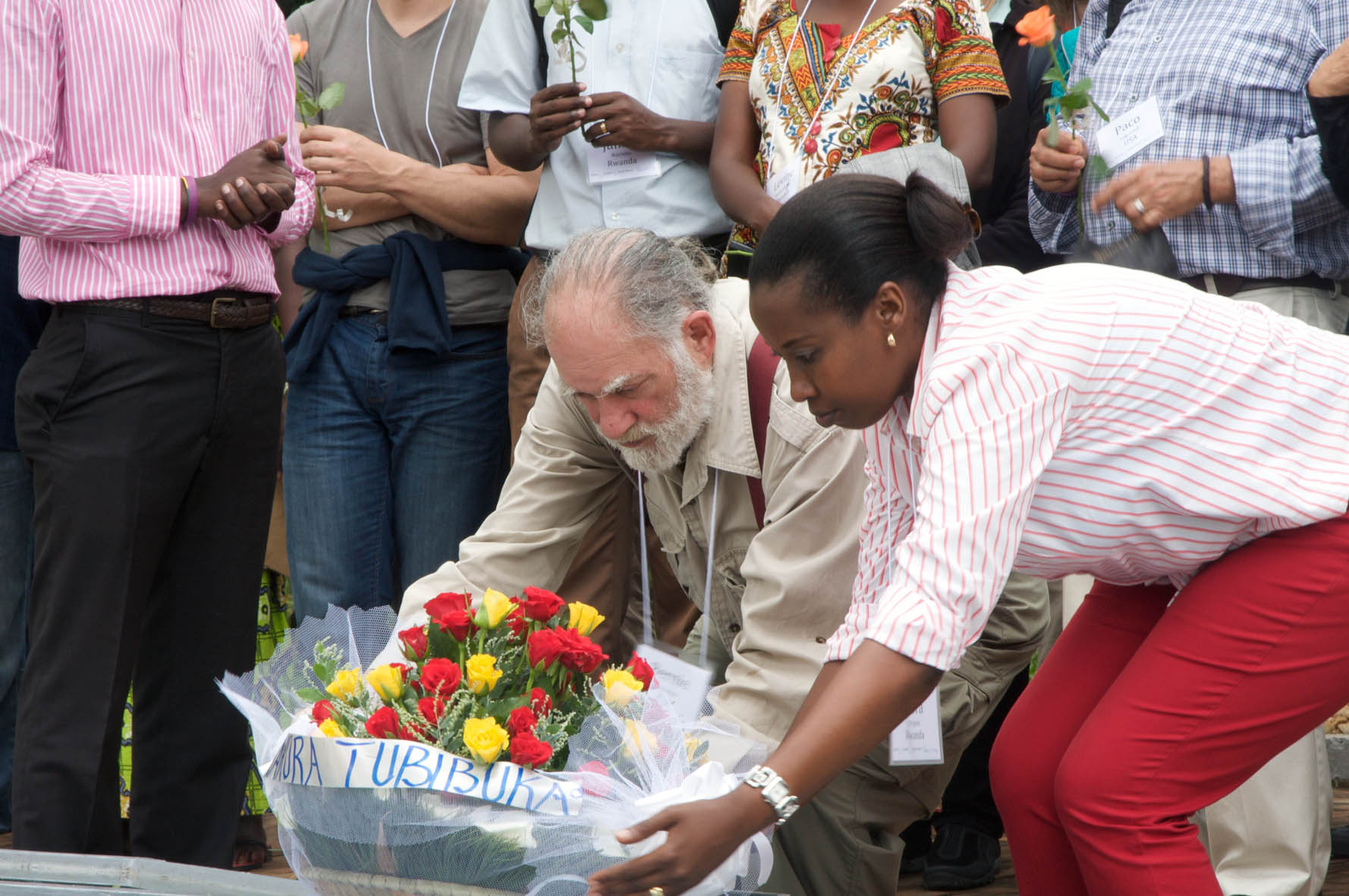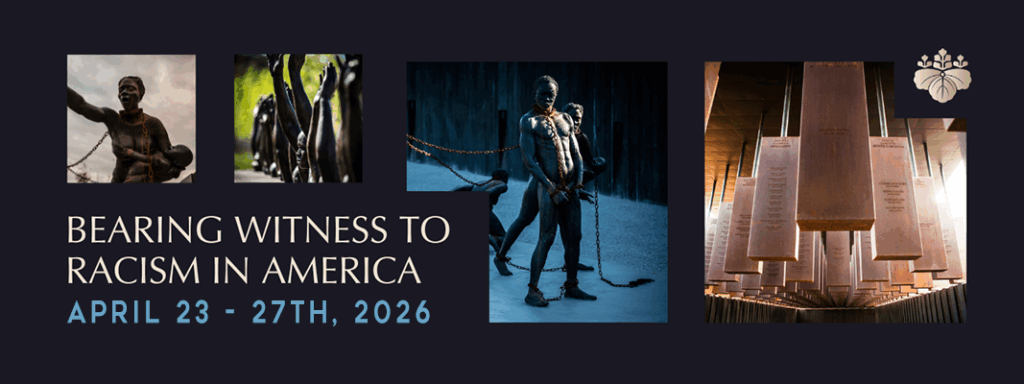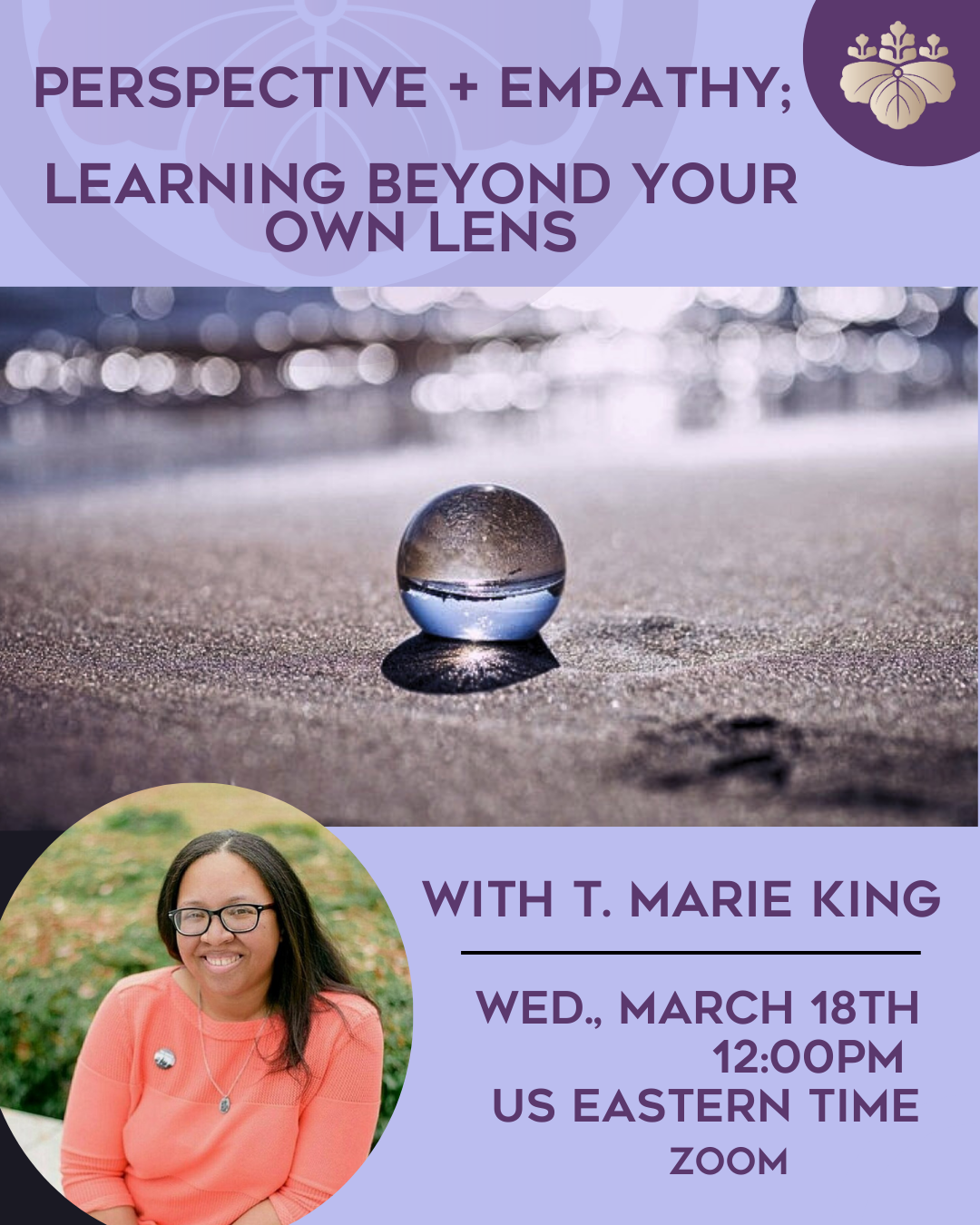The Three Tenets
The Three Tenets of the Zen Peacemakers were first developed and articulated by Roshi Bernie Glassman in 1994. Since then, they have been studied and practiced by many people, including non-Zen Buddhists, and presented by many Zen Teachers.
Below is an article on the Three Tenets by Roshi Egyoku Nakao, Abbot of the Zen Center of Los Angeles, as well as other talks and reflections on the Three Tenets by other contributors.

Not - Knowing
Not-Knowing: letting go of fixed ideas about yourself, others, and the universe.
With regular application, the practice of the Three Tenets can become a way of living from the center at all times. Although the tenets are taken in order when you study them, the practice is not necessarily linear. Each tenet reflects the others; they are seamlessly embedded in each other, flowing as center, circumstance, and action in an ever-unfolding and endlessly varied circle of life.

Difficult circumstances —political upheaval, the sudden loss of a loved one, or the unexpected termination of your job—can make life feel suddenly unstable. But actually, according to the Buddha, things are always unstable. It’s just that we have a tendency to live life from a set of unquestioned beliefs that make our lives feel solid. How can you know what will happen next? You can’t—because the universe, from its tiniest particles to its largest forms, is continually in flux.
In Three Tenets practice, not-knowing trains you to continually set aside fixed points of view. I describe not-knowing as a flash of openness or a sudden shift to being present in the moment. This dropping away of the things you have relied upon for a sense of stability may lead you to examine what you believe is your center, to take shelter in the place before anything arises, a place of emptiness and profound silence, a place of the deepest rest where self-interest has not yet entered. This is not a void, but rather a darkness where things are not yet differentiated or seen. You yourself can go to the darkness and become like an empty vessel, empty of points of view and preferences. An empty vessel refuses nothing and receives everything that is coming at it from all directions. By practicing in this way, you can create more space to accommodate your own reactivity and the points of view of others.
It should be said that the not-favoring-of-viewpoints that arises when one practices not-knowing does not demonstrate a lack of caring. Rather, not favoring any one thing over another allows you to center yourself within a boundless net of interconnection and to expand your circle of caring. In this way, the practice of not-knowing can align you with the ever-changing interconnected reality called Life. Practicing not-knowing may seem impossible to do, and yet, when you realize that life itself excludes nothing, practicing not-knowing over time will enable you to become more aware of what you choose to let in and open to what you had previously excluded.
Bearing Witness
Bearing Witness: to the joy and suffering of the world
The practice of bearing witness is to see all of the aspects of a situation including your attachments and judgments. You cannot live solely in a state of not- knowing, because life also asks that you face the conditions that are coming at you by being present to them. When you bear witness you open to the uniqueness of whatever is arising and meet it just as it is. When combined with not-knowing, bearing witness can strengthen your capacity for spaciousness, thus enabling you to be present to the very things that make you feel as if you have lost your center. It can strengthen your capacity to listen to other points of view, thus allowing a more nuanced picture of a situation to emerge.

Buddhist meditation trains you to bear witness by strengthening your awareness of thoughts, feelings, and sensations as they arise and pass. As your awareness strengthens, you begin to experience spaciousness and stability and see that you have a choice in your response to what is arising. Over time, you learn to bear witness to all the elements that are arising with a curious and compassionate attitude. This does not mean repressing the strong emotions that arise or stopping the escape into story drama, but rather being aware of what you are choosing to feed. A wise old tale often attributed to the Cherokee warns that when many demons are struggling inside you, the one that you feed is the one that will become the strongest. You alone are responsible for what you feed.
Bearing witness can allow you to eventually come to terms with the most difficult life circumstances. The practice is always available to you regardless of the time, place, situation, or people involved. There is nothing that you cannot bear witness to, from dusting the lint off your sweater to living in a pit for two years. In bearing witness, you are actively engaged and embodied, even struggling, with whatever is arising. Sometimes spiritual practices can have a neutralizing effect, flattening feelings rather than stimulating them. To hold to the center is not about becoming a spiritual zombie; it is about living the fullness of your own humanity. You are alive, so be fully alive.
Taking Action
Taking Action: that arises from Not-Knowing and Bearing Witness
The third tenet is Taking Action. It is impossible to predict what the action in any situation will be, or the timetable for when it will arise or what might result from it. The underlying intention is that the action that arises be a caring action, which serves everyone and everything, including yourself, in the whole situation.
Sometimes the action is as simple as continuing on with the practice of the first two tenets of not-knowing and bearing witness; the very practice of the Three Tenets is itself a caring action. And though the action that arises from the engagement of not-knowing and bearing witness is spontaneous and often surprising, it always fits the situation perfectly.

Training with the tenets is a matter of taking a backward step again and again and continually discerning your internal processes in the midst of acknowledging what is happening around you. An effect of ongoing and consistent practice of the Three Tenets is that when you lose your sense of center and fall into reactivity, you also regain your center more quickly. And when you continually perform this practice in the midst of all the activities of your daily life, the practice will be readily accessible to you during the most challenging circumstances.
Training with the tenets brings about resiliency of the spiritual muscles and an ever-deepening sense of reality. As life unfolds around you, the Three Tenets are active inside of you, always directing you back to the center.


